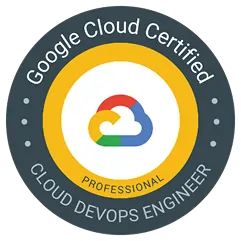Course Design By
Nasscom & Wipro
+ More Lessons
Course Design By

Nasscom & Wipro
Course Offered By

Croma Campus

Stories
success
inspiration


career upgrad


career upgrad


career upgrad


career upgrad
19-Jul-2025*
21-Jul-2025*
16-Jul-2025*
19-Jul-2025*
21-Jul-2025*
16-Jul-2025*

You will get certificate after
completion of program

You will get certificate after
completion of program

You will get certificate after
completion of program

| Category | Associate |
| Exam Name: | Google Professional Cloud DevOps Engineer |
| Exam Code: | PCDE |
| Exam Duration: | 120 Mins |
| Exam Format: | Multiple Choice and Multiple Select Questions |
| Passing Score: | 70% (Score not officially disclosed by Google) |
in Collaboration with






Empowering Learning Through Real Experiences and Innovation

we train you to get hired.

Phone (For Voice Call):
+91-971 152 6942WhatsApp (For Call & Chat):
+91-971 152 6942Get a peek through the entire curriculum designed that ensures Placement Guidance
Course Design By


Course Offered By

Ready to streamline Your Process? Submit Your batch request today!
The Google Cloud DevOps enginner course can be completed in 35-45 days
You will learn from a skilled Google Cloud DevOps engineer
You can earn around ₹7,00,000 – ₹38,00,00 PA after completing the Google Cloud DevOps engineer training program

FOR QUERIES, FEEDBACK OR ASSISTANCE
Best of support with us
For Voice Call
+91-971 152 6942For Whatsapp Call & Chat
+91-9711526942